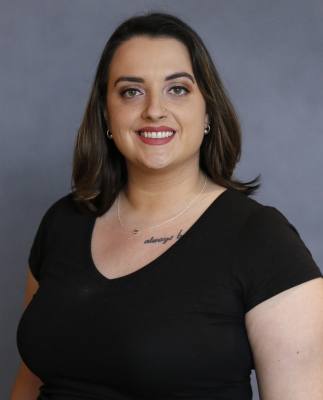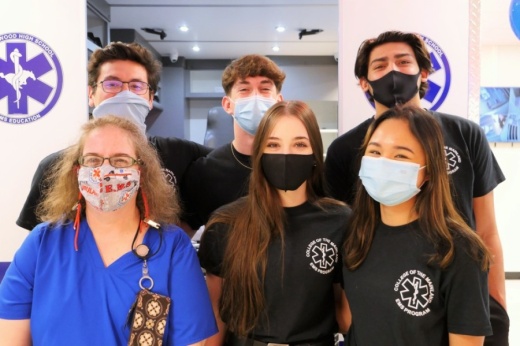The district’s EMT courses are new for the 2020-21 school year and were approved by the board of trustees in August. FHS health science teacher Carla Burris had been campaigning for the ambulance simulator since fall 2019, before the course was formally introduced, according to a Friendswood ISD Education Foundation press release.
Burris and Ashley Adair, the education foundation’s executive director, applied for and received a 2020 UTMB President’s Cabinet Award to fund the $50,000 simulator, per the release. The grant is the first of its kind for the foundation, Adair said in the release.
Burris and her students received word of the grant funds in September, a moment Burris said was a very pleasant surprise.
“With everything going on in the world right now, I did not think it would actually happen,” Burris said in the release. “[The students and I] were shocked. I was so excited that this missing piece of the puzzle—the real-world piece—was finally coming to fruition.”
The courses are taught as part of FISD’s dual-credit partnership with College of the Mainland. COM paid FISD about $1,600 in the fall semester for COM’s embedded faculty teaching EMSP 1501, which is part of a two-course EMT sequence, per board documents.
The district is expanding its offerings to provide more robust, individualized programming for students on their journeys to college, career and military readiness, FISD leaders said in December.
“[Authentic learning] is learning you do by experiencing it, learning you can put your hands on,” FISD Superintendent Thad Roher said in the press release. “The simulated ambulance [will] bring a whole new dynamic to the launch of our EMT program, [providing] not just learning you can put your hands on, but learning you can literally put your whole body into.”
EMSP 1501 students participate in 11 class hours, or contact hours, each week for 16 weeks; EMSP 1260, the next course in the sequence, requires students to participate in six contact hours a week. There is a $271 cost associated with participation in both courses, per board documents.
Preparing for the future of health care and instilling passion in future workforce members is more important than ever amid the coronavirus pandemic, said Barbara Slusher, chair of the UTMB President’s Cabinet Awards Committee, said in the release.
Burris said she is looking forward to seeing students continue their investment in EMT training.
“My hope is that [my students] become competent, confident [health care] professionals,” she said in the release. “I’m passionate, and now, I see that passion in the students, which is truly amazing.”





